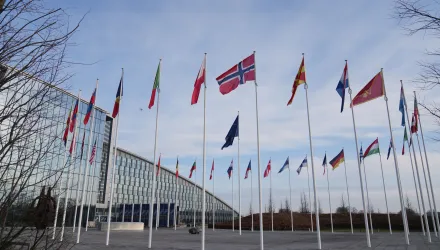A key to the future is to avoid the trap of confrontation, Graham Allison says in new book
As China surpasses the United States as the world’s largest economy, flexes its might in the South and East China seas, and takes a leading role fighting climate change, it appears to be on course to challenge America’s superpower status.
Despite a seeming rapprochement over chocolate cake between China’s President Xi Jinping and President Trump in April, how the two countries navigate their strategic interests and work through China’s rise remains unclear. Is conflict inevitable when an upstart challenges a dominant power, or does history provide a road map for peaceful coexistence?
Graham Allison, the Douglas Dillon Professor of Government and outgoing director of the Belfer Center for Science and International Affairs at Harvard Kennedy School, calls this the defining question of the 21st century. In a new book, “Destined for War: Can America and China Escape Thucydides’ Trap?,” Allison examines the looming complications, using lessons drawn from the clashes between Sparta and Athens in ancient Greece, as well as other world conflicts. He spoke about his book and these issues in an interview.
The full text of this publication is available via Harvard Gazette.



